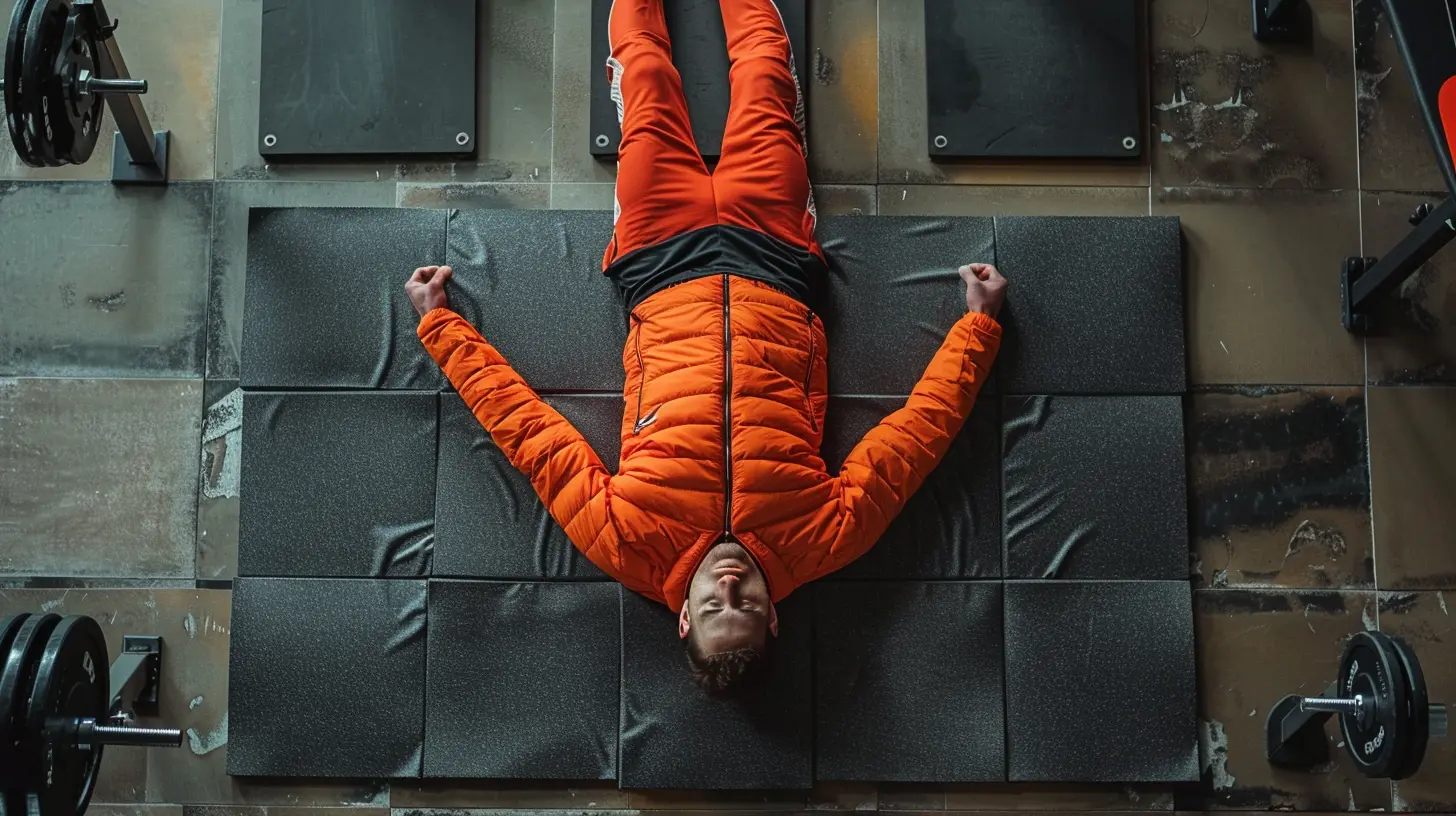How to Optimize Your Sleeping Environment for Better Post-Workout Recovery
2 November 2025
We all know that post-workout recovery is just as important as crushing your workout—and sleep is like the holy grail of recovery. You can chug protein shakes, eat clean, and follow a killer training plan, but if your sleep sucks? You're short-changing your results.
Let's be real: tossing and turning all night doesn’t exactly scream optimal muscle growth or peak performance. So, what if I told you that tweaking your sleeping environment could fast-track your recovery, reduce soreness, and even boost gains?
Stick around, because we’re about to dive deep into how to optimize your sleeping environment for better post-workout recovery. Think of this as your ultimate guide to turning your bedroom into a muscle-repair sanctuary.
Why Post-Workout Recovery Starts With Sleep
Before we get into the nitty-gritty of optimizing your bedroom, let’s talk about why sleep is so critical for post-workout recovery.Here’s the short version: when you sleep, your body gets to work repairing the microtears in your muscles caused by exercise. This is when growth hormone levels peak, inflammation reduces, and tissue rebuilds. In fact, most of your recovery magic happens during deep sleep and REM cycles.
Without quality sleep? Recovery slows down, muscles stay sore longer, and your performance dips. That means sleep isn't just rest—it's your muscle-building partner in crime.
The Science Behind Sleep and Muscle Recovery
To set the stage even more clearly, let’s get a little geeky (just for a sec).- Deep Sleep (Slow-Wave Sleep): This is where the real muscle repair happens. Your body releases the highest amounts of growth hormone here, which is absolutely essential for muscle growth and recovery.
- REM Sleep: Vital for cognitive functioning, hormonal balance, and emotional regulation—all of which influence training outcomes.
When you don’t get enough quality sleep? Your cortisol (the stress hormone) stays elevated, slowing recovery and actually degrading muscle tissue. Yikes.
Step-by-Step: How to Optimize Your Sleeping Environment
Now, let’s talk about the practical stuff. How do you actually create a recovery-friendly sleep zone? Let’s break it down.1. Dial In Your Room Temperature
Ever notice it’s impossible to sleep when the room feels like a sauna? That’s because your core body temperature needs to drop slightly to fall asleep and stay there.Ideal Temp: Keep your bedroom between 60–67°F (15–19°C) for the best sleep quality.
You can:
- Crack open a window for airflow
- Use a programmable thermostat
- Invest in a cooling mattress or cooling sheets
Working out raises your body temp, so if you’re an evening exerciser, giving your body some time to cool down—and keeping your room chill—can do wonders.
2. Make It Pitch Black (Seriously)
Light is enemy #1 for your circadian rhythm. Artificial light, especially blue light from screens, suppresses melatonin production (the sleep hormone). That means your body doesn’t get the signal to “power down.”How to black out your space:
- Install blackout curtains
- Use a sleep mask
- Cover LED lights from electronics
- Ditch your phone at least 30–60 mins before bed
Your body craves darkness to take sleep (and recovery) seriously.
3. Quiet the Noise (Literally)
Sleep and noise don’t mix well—especially post-workout when your body is primed for recovery. Any little disruption can pull you out of deep sleep, robbing you of the restorative benefits.Here’s how to keep things quiet:
- Use earplugs or a white noise machine
- Hang thick curtains (they block sound too!)
- Soundproof your windows if you can
Remember, your body isn’t just resting—it’s rebuilding. Let it do so in peace.
4. Invest in a Supportive Mattress and Pillow
Your bed should feel like a cloud that hugs your muscles in all the right places. An old, saggy mattress? That's a fast track to poor posture, joint pain, and restless nights.What to look for:
- Medium-firm mattresses generally support proper spinal alignment
- Memory foam can help with pressure relief
- Pick a pillow that supports your neck based on your sleep position
Recovery sleep is all about support. If your mattress is over 8 years old, it’s probably time to replace it.
5. Eliminate EMFs and Reduce Device Use
Yeah, we’re going here.There’s emerging research suggesting that high levels of electromagnetic fields (EMFs) from devices may disrupt sleep quality. Is the jury still out? Kind of—but unplugging can’t hurt.
Some tips:
- Keep your phone away from your bed (at least 3 feet)
- Turn on “do not disturb” mode
- Remove Wi-Fi routers or electronics from your bedroom
Think of your room as a tech-free zen zone.
6. Boost Air Quality
Good air = good sleep. Poor air = inflammation, congestion, and interrupted breathing.Here’s how to breathe better while you sleep:
- Use an air purifier (especially helpful for allergies)
- Open windows daily to circulate fresh air
- Add plants like peace lilies or snake plants to purify naturally
- Keep your sheets and mattress clean—sweat and bacteria can build up
Your lungs will thank you, and so will your muscles.
7. Stick to a Post-Workout and Pre-Sleep Routine
Consistency is key when it comes to both working out and sleeping.Try this:
- Cool down properly post-workout with stretching or foam rolling
- Take a warm (not hot) shower to help drop core body temperature afterward
- Dim the lights an hour before bed
- Try magnesium or herbal teas like chamomile to calm your nervous system
Creating a routine sends your body all the right signals: It’s time to recover.
8. Limit Caffeine and Alcohol
You probably already know this one, but it’s worth repeating.Caffeine can stay in your system for up to 8 hours. That post-afternoon coffee might seem harmless, but it could be the reason you're staring at the ceiling at 1 AM.
Alcohol? While it might help you fall asleep faster, it actually interrupts REM sleep and makes recovery less effective.
Aim to:
- Cut off caffeine after 2 PM
- Limit alcohol, especially post-workout (when your body is already inflamed)
Swap them for herbal teas or just good ol’ fashioned water.
Bonus Tips: Biohacks for Better Recovery Sleep
Want to take things to the next level? Here are some next-level strategies for you high-achievers out there.Try Aromatherapy
Scents like lavender and eucalyptus can promote relaxation and reduce stress. Use essential oils in a diffuser or mist your pillow lightly.Use Weighted Blankets
These can increase serotonin and melatonin levels while reducing cortisol. It’s like getting a hug all night long—seriously soothing after a tough training day.Infrared Light Therapy
Some athletes swear by using infrared light before bed to reduce muscle soreness and improve circulation.Tracking Devices
Consider using sleep trackers (like WHOOP, Oura, or Apple Watch) to monitor sleep stages and recovery metrics. Just don’t obsess—awareness is helpful, not stress-inducing.Common Mistakes to Avoid
Let’s be honest—we all have some bad habits that sabotage sleep. Here are a few to keep an eye on:- Using your phone in bed: That blue light and dopamine hit don’t help your sleep cycles at all.
- Skipping your cool-down: Going straight from beast mode to bedtime doesn’t allow your body or nervous system to transition into recovery mode.
- Late-night snacks full of sugar: These spike your insulin and can wake you up mid-sleep.
- Blasting music or TV to fall asleep: Even if you think it helps, chances are it’s preventing deeper sleep cycles.
The Takeaway
At the end of the day (pun totally intended), sleep is the foundation of athletic recovery. You can optimize your workouts, nutrition, and supplements till you’re blue in the face—but if your sleeping environment sucks? You're leaving gains on the table.Transforming your bedroom into a sleep sanctuary doesn’t have to be complicated. A few tweaks—cooler temps, pitch-black darkness, a solid mattress, less tech—can make a world of difference.
Think of sleep as the secret weapon in your fitness arsenal. Treat it like part of your training plan, not an afterthought. Your muscles, mindset, and overall health will thank you.
So tonight, as you slide into bed, ask yourself: Did I set the stage for recovery—or did I just pass out hoping for the best?
all images in this post were generated using AI tools
Category:
Post Workout RecoveryAuthor:

Holly Ellison
Discussion
rate this article
1 comments
Laila McAndrews
Enhancing sleep quality post-workout boosts recovery and overall performance.
November 5, 2025 at 3:45 PM

Holly Ellison
Absolutely! Prioritizing sleep quality can significantly enhance recovery and performance by allowing your body to repair and restore after workouts.


